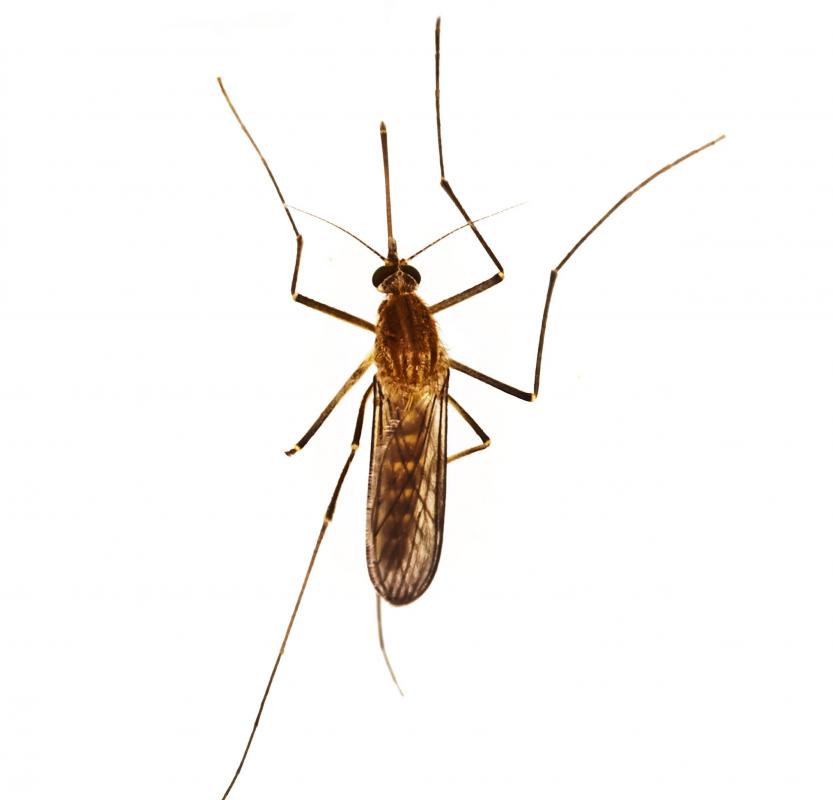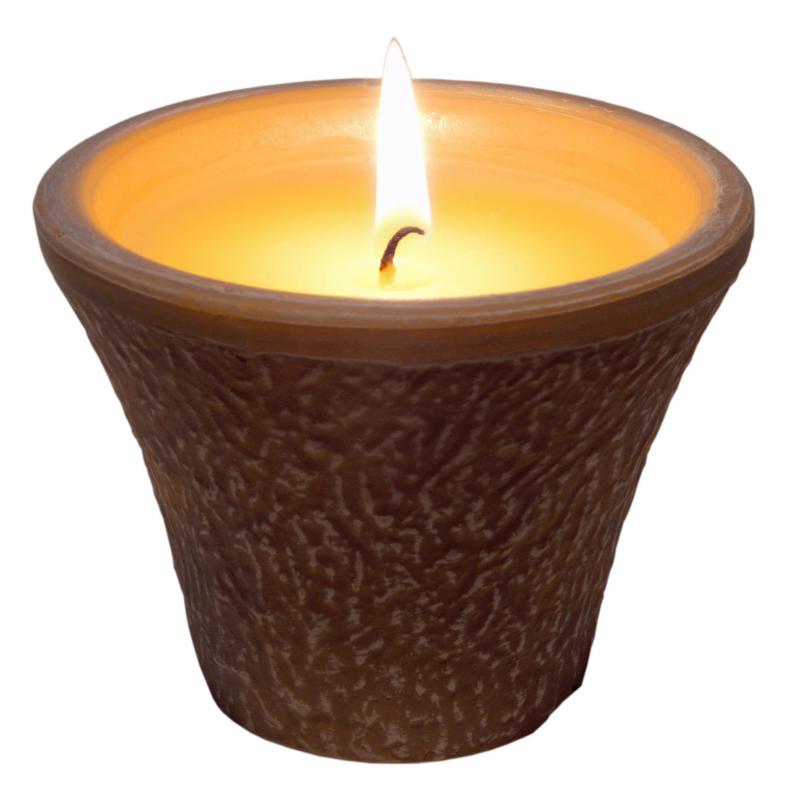At HomeQuestionsAnswered, we're committed to delivering accurate, trustworthy information. Our expert-authored content is rigorously fact-checked and sourced from credible authorities. Discover how we uphold the highest standards in providing you with reliable knowledge.
Which Herbs are Natural Insect Repellants?
Long before there were commercial insect-repellant sprays and wipes, there were insects, and, consequently, people sought to repel them. As our forebears who lived in the days before DEET knew, many herbs and essential oils have excellent insect-repelling properties. And happily, there are a number that are easy to cultivate or are readily available at the health-food store.
As a bonus, many of the insect-repelling herbs are ornamental and fragrant as well as effective, thus doing double duty in the garden. Ecologically friendly and economical, natural insect repellants made from herbs act without the harsh chemicals present in many commercial repellants.

The herbs most well known for their insect-repelling abilities are bay leaf, chamomile, cinnamon, cloves, garlic, lavender, lemongrass, neem leaf, mugwort, pennyroyal, rosemary, rue, santolina, southernwood, tansy, and thyme. Citronella and tea tree oils are potent essential oils that may be combined with herbs in insect-repelling sachets or liquid infusions to enhance their effectiveness.

Insect-repelling herbs can be planted in pots kept on windowsills to discourage insects from entering the house. Where climate allows, the herbs can be cultivated in a dedicated garden, or they can be added to an existing vegetable garden or flower bed. Many herbs are excellent companion plants. Because they discourage insects from damaging the plants around them, they are a great complement to other forms of organic pest control. Herbs with insect-repelling properties also can be grown in pots and placed around the perimeter of an outdoor dining area or patio to keep insects at bay when eating or relaxing outside.

Fresh herbs are "activated" by gently bruising their leaves—rubbing them between the thumb and fingers with light pressure. This brings the plant’s oils to the surface of the leaf, releasing the fragrance and enhancing its ability to repel insects. Bundles and garlands of dried herbs may be hung near windows, doors, and in entryways to ward off insects. Dried leaves and stems can be crushed, blended with essential oils and a fixative such as cut orrisroot, and packaged in cloth sachets. The sachets can then be tucked into cabinets, drawers, sheds, and basement areas. Garlands of dried herbs can be hung near pet areas to repel fleas.

On camping trips, sachets that repel mosquitoes and gnats can be hung from tent flaps and camper doors to discourage these insects from entering. They can also be dangled from the arms of camp chairs and from hammocks. Fly-repelling herbs and sachets can be hung around cooking and eating areas.
Pennyroyal, an herb in the mint family, is exceptionally effective at repelling flies, fleas, and gnats. However, the essential oil of pennyroyal is considered toxic and should not be ingested or handled, particularly by pregnant women. It should be noted that some herbs and essential oils are toxic and care should be taken when handling them. Herbs and herbal preparations to repel insects should be kept out of the reach of children and pets.
If you would like to try blending your own mosquito-repelling sachets, you will need the following:

1 cup (100 g) cut orrisroot or processed corncob litter as a fixative
1/4 cup (60 ml) citronella essential oil
1/2 cup (25 g) dried lavender flowers
1/2 cup (25 g) dried rosemary
1/2 cup (20 g) dried lemon balm
1 cup (50 g) dried santolina
1 cup (50 g) dried mugwort
In a large glass jar with a screw-on lid, combine orrisroot or corncob litter with citronella. Seal, shake, and let cure in a cool, dry place for a few days. In a large glass or plastic bowl, combine herbs. Add cured fixative and toss gently to blend. Spoon this mixture into small muslin or cotton sachets and seal the neck of each with a rubber band. Tie with a piece of ribbon or twine and hang from a lawn chair, hammock, camp chair, tent flap, etc. Do not allow sachets to become damp—if using outside, protect from dew, rain, and the lawn sprinkler. When you’re not using them, store your sachets in a resealable plastic bag or glass jar in a cool, dry place.
AS FEATURED ON:
AS FEATURED ON:



















Discussion Comments
Thank you for this informative and helpful article. I'm so glad there are ways to get rid of bugs without killing them. I've been catching them and throwing them out and losing the battle.
You can also grow a flower called pyrethum- daisy type flower possibly pink, I have not grown it in awhile. The dried flower heads can be brewed into tea and sprayed on vegetable plants to keep pests at bay. The chemical pyrethium is found in many bug repellents.
Post your comments